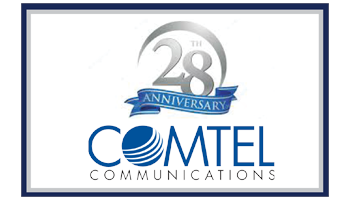6 Advantages to Unified Communications – Part 1, Concurrent, Multichannel Communications
The premise of unified communications (UC) technology is simple. Businesses can consolidate multiple communications functionalities into a single tool, to create an essential platform for critical business processes. This enables seamless real-time communications across channels—inside as well as outside of an organization. This translates to a multitude of business benefits, ranging anywhere from baseline productivity to attracting millennial talent to your workforce.
UC brings together various features into a single interface this includes voice calls, texting, instant messaging, email, conferencing, video calls and even faxing. The experience remains consistent across employees, regardless of what feature or screen they’re using, or where they’re using it from. The result is better operational agility, customer engagement, and seamless connectivity – all strategic business goals that differentiate a company from its competition.
According to Grand View Research, the global UC market size is expected to reach $143.49 billion by 2024. While impressive, businesses still may not realize all of the benefits that UC can truly provide. Many perceive the cost savings that come from having siloed communications functions, or replacing costly conferencing platforms, as the main advantage. In the following six-part series, we will highlight six more advantages to be gained in moving to a business UC system.
Advantage #1 - Concurrent, Multichannel Communications
UC optimizes how businesses communicate, making it faster and easier for employees to converse. It also makes their interactions more productive when they do. Rather than let standing department meetings and conference calls gobble up valuable work time, UC enables users to make informed choices about how to interact with each other.
To put this into perspective, an employee can send a chat to a coworker using an UC interface— asking a question about a company policy. The two can instant message (IM) back and forth—but if the conversation becomes more complex, that communication can be escalated to a voice call with a simple click of the mouse. And, if one party needs to leave their desk, they can seamlessly continue the conversation using a mobile device.
At the heart of this is the “presence” function, which shows the status of everyone on the system and whether they’re available, along with their preferred form of contact. By selecting a name, it’s possible to initiate an IM, text, voice call, or add the user to a conference. UC delivers a consistent user experience, meaning employees can work the same way regardless of the endpoint, operating system, or network used to access the platform. This streamlines how workers collaborate, eliminating phone tag and improving efficiency.
Another key advantage is concurrence. Many businesses use advanced communications techniques like intra-office chat, but according to an analyst for J. Arnold & Associates, “UC allows applications to be used concurrently, creating multichannel sessions so employees can collaborate more effectively. UC’s value is ultimately reflected in employee performance. For businesses that see a direct connection between communication and workflow outcomes, these cases provide a solid foundation for making a decision that will serve management and IT equally well.”
Chadwick Martin Bailey research firm quantified just how much this multichannel aspect of UC improves efficiency in a recent survey. 49% of organizations saved 20 minutes per employee daily because workers were able to reach each other on the first try thanks to the presence function; and 54% saved that time daily by escalating IM chats into phone calls, thus answering questions and resolving issues more quickly.
To explore how implementing Unified Communications can benefit your business, utilize professionals, like independent telecom agents, who will help you review your business goals and can present solutions at no cost to you. In addition, a telecom agent or consultant can assist with the procurement of your technology, as well as ongoing care and issue resolution with the selected provider.
About Simplicity
Simplicity VoIP, based in Richmond, VA, provides hosted PBX, VoIP and business telephone solutions nationally to small, medium, and enterprise-level businesses for a comprehensive unified communications experience. It’s Class 5 geo-redundant VoIP platform is offered in addition to fax-to-email, phones and equipment, and managed services. Named as Richmond’s 11th fastest growing company by Richmond BizSense in 2018, Simplicity VoIP’s key to success is its on-site service, installation and training supported 24/7/365 by a world-class client services team.




